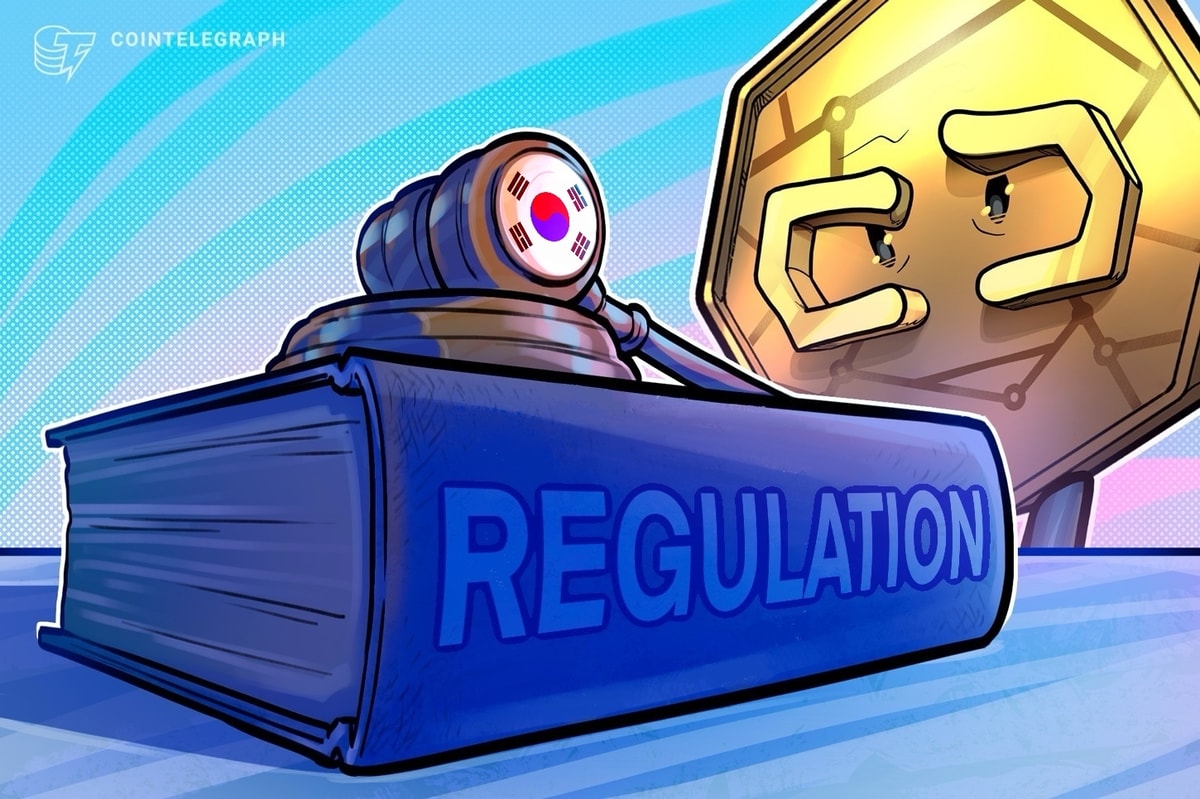July 31, 2025
5 min read
Ezra Reguerra
South Korea’s regulators plan new rules on leveraged crypto lending to protect investors and tighten oversight on exchanges like Upbit and Bithumb.
South Korea to Regulate Leveraged Crypto Lending with New Guidelines
South Korea’s financial regulators are set to release new guidelines on cryptocurrency lending services next month to tighten oversight and protect investors amid growing concerns over leveraged crypto products. The Financial Services Commission (FSC) and Financial Supervisory Service (FSS) announced the formation of a joint task force to develop a regulatory framework for crypto lending, according to local media Yonhap News Agency (YNA). This move follows the introduction of new lending services by South Korean exchanges Upbit and Bithumb. According to YNA, Bithumb allows users to borrow up to four times their collateral, while Upbit offers loans worth up to 80% of users’ asset value. The task force was created in response to the lack of clear safeguards for investors, raising alarms over potential losses caused by rapid market fluctuations.South Korea Tightens Oversight on Crypto Lending
The task force will include representatives from the FSC, the FSS, and the Digital Asset eXchange Alliance (DAXA). DAXA is a self-regulatory organization formed by five major South Korean crypto exchanges: Upbit, Bithumb, Coinone, Korbit, and Gopax. The task force will consider international regulations, traditional stock market rules, and the specifics of the local crypto market to formulate comprehensive crypto lending guidelines. These guidelines are expected to address:- Leverage limits
- User and asset eligibility
- Risk disclosures
- Transparency requirements for lending-related digital asset activities Authorities have also requested exchanges to review high-risk and legally ambiguous services, such as those offering excessive leverage or fiat-based lending. The new rules are anticipated to lay the groundwork for future crypto legislation and align with the government’s broader efforts to increase accountability in the digital asset sector.
- South Korea Considers New Rules for Crypto Lending Amidst Market Volatility
- Understanding Leverage in Cryptocurrency Trading
- The Role of AI in Financial Regulation and Compliance
Bank of Korea to Launch Virtual Asset Committee
Following the establishment of the lending task force, the South Korean central bank announced plans to convert its existing central bank digital currency (CBDC) research and development teams into a Virtual Asset Team with a broader mandate. The Bank of Korea stated that this team will also handle discussions related to stablecoins and other crypto assets and will collaborate with the government during the legislative process. This announcement coincided with a surge in South Korean bank stocks after several banks made moves related to stablecoins. In June, Google Finance data showed that companies like Kakao Bank, Kookmin Bank, and the Industrial Bank of Korea saw stock increases ranging from 10% to 19% after registering stablecoin trademarks.Frequently Asked Questions (FAQ)
Regulation and Oversight
Q: What is the main reason for South Korea's new regulations on crypto lending? A: The new regulations are being implemented due to growing concerns over leveraged crypto products and the need to protect investors from potential losses caused by rapid market fluctuations. Q: Which entities are involved in developing the new crypto lending guidelines? A: The regulatory framework is being developed by a joint task force including representatives from the Financial Services Commission (FSC), the Financial Supervisory Service (FSS), and the Digital Asset eXchange Alliance (DAXA). Q: What specific aspects are the new South Korean crypto lending guidelines expected to cover? A: The guidelines are expected to address leverage limits, user and asset eligibility, risk disclosures, and transparency requirements for crypto lending activities. Q: What actions have authorities requested from crypto exchanges? A: Authorities have requested exchanges to review high-risk and legally ambiguous services, including those offering excessive leverage or fiat-based lending.Bank of Korea's Role
Q: What is the Bank of Korea planning to do regarding virtual assets? A: The Bank of Korea is converting its existing CBDC research and development teams into a Virtual Asset Team to handle discussions related to stablecoins and other crypto assets, and to collaborate with the government on legislation.Source: Originally published at Cointelegraph on Thu, 31 Jul 2025 11:44:16 GMT

